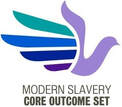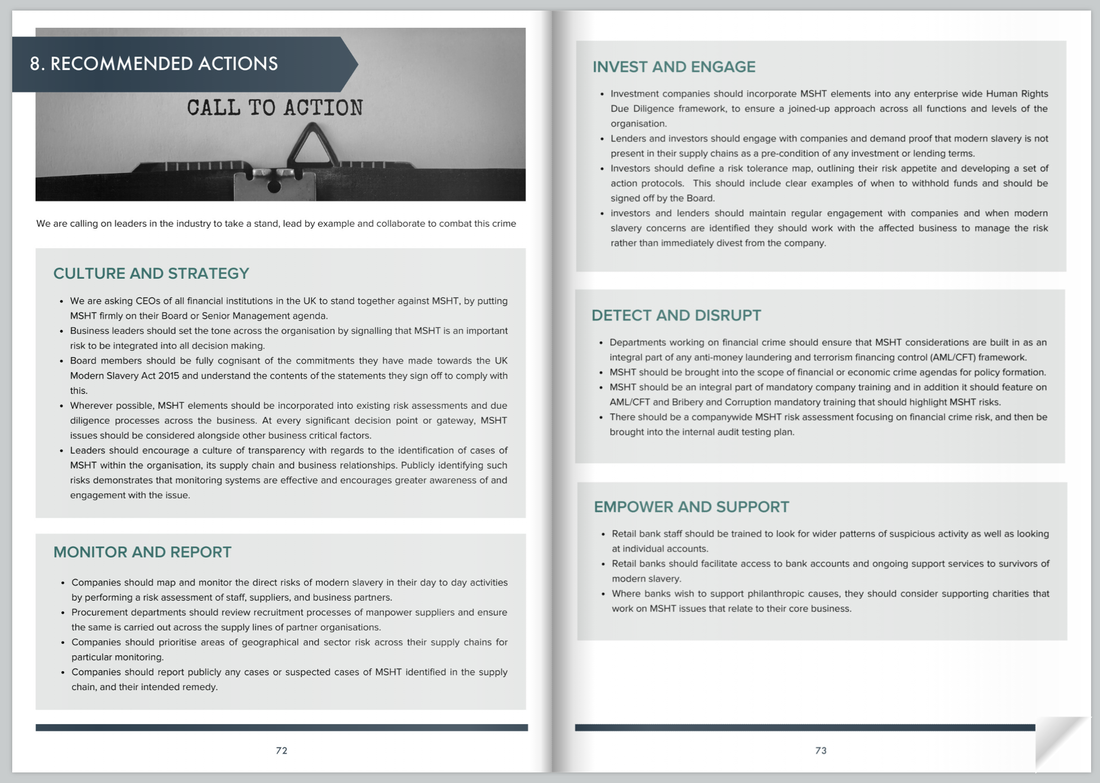Helpful Resources
BS 25700: Organizational responses to modern slavery - Guidance
BSI has published a pioneering national standard, giving organizations guidance on how to manage modern slavery risks in their operations, supply chains and wider operating environment.
BS 25700 provides organizations with guidance for addressing the risk of modern slavery, including prevention, identification, response, remediation, mitigation, and reporting.
The benefits to businesses include:
BSI has published a pioneering national standard, giving organizations guidance on how to manage modern slavery risks in their operations, supply chains and wider operating environment.
BS 25700 provides organizations with guidance for addressing the risk of modern slavery, including prevention, identification, response, remediation, mitigation, and reporting.
The benefits to businesses include:
- A holistic approach to addressing modern slavery that puts people at the heart of an organization
- Effective management of the risk of modern slavery in a way that supports human rights due diligence
- Demonstration of organizational commitment to ESG which helps build confidence in your organization’s governance and ethics
- Positive business reputation
- Increased sales and customer loyalty, as consumers seek businesses with higher ethical standards
- Greater ability to attract talent and staff retention
- Improved investor confidence
- More responsive and stable supply chains
Preventing Modern Slavery & Human Trafficking: An Agenda for Action across the Financial Services Sector
In January 2021, TRIBE Freedom Foundation co-published an agenda for action targeting the UK Financial Industry with guidance and recommendations for the financial sector to prevent modern slavery and support the survivors. Commissioned by the Independent Anti-Slavery Commissioner, the work was produced in collaboration with Themis and involved outreach to over 3,000 individuals and organisations.
One of the main issues identified by the Report was the importance of financial inclusion and financial independence for survivors. If survivors can open a bank account and gain access to financial services, including savings accounts, business loans and financial literacy education, it can play a pivotal role in helping them regain confidence and a sense of well-being. The TRIBE Survivor Financial Empowerment Programme was launched to respond to the needs of our partners and address the gap in provisions for survivors when they are opening a bank account and seeking to re-build their financial independence.
The report also summarised key actions (see below). The report and executive summary can be accessed here and here respectively.
In January 2021, TRIBE Freedom Foundation co-published an agenda for action targeting the UK Financial Industry with guidance and recommendations for the financial sector to prevent modern slavery and support the survivors. Commissioned by the Independent Anti-Slavery Commissioner, the work was produced in collaboration with Themis and involved outreach to over 3,000 individuals and organisations.
One of the main issues identified by the Report was the importance of financial inclusion and financial independence for survivors. If survivors can open a bank account and gain access to financial services, including savings accounts, business loans and financial literacy education, it can play a pivotal role in helping them regain confidence and a sense of well-being. The TRIBE Survivor Financial Empowerment Programme was launched to respond to the needs of our partners and address the gap in provisions for survivors when they are opening a bank account and seeking to re-build their financial independence.
The report also summarised key actions (see below). The report and executive summary can be accessed here and here respectively.
TRIBE Survivor Financial Empowerment Programme
The TRIBE Survivor Financial Empowerment Programme promotes survivor financial independence and financial literacy support, to empower survivors with long-term financial well-being, freedom and stability.
Financial institutions and survivor support organisations have a crucial role to play in equipping survivors with the skills and resources to manage their finances and develop long-term financial independence. Our research has identified six key areas where banks and survivor support organisations can help drive long-term financial empowerment and address the existing barriers faced by survivors.
This includes:
- Collaborating with survivor support organisations.
- Employee training and protecting vulnerable customers.
- Internet banking for survivors.
- Financial literacy education.
- Employability support.
- Access to wider banking services.
The importance of survivor financial empowerment and access to banking cannot be overstated, as it gives survivors a sense of hope and belonging. The combination of financial inclusion (access to a bank account and other financial services) and financial independence (comprising stability, control and saving for the future) enables survivors to rebuild their lives free from exploitation or financial manipulation.
When survivors are financially empowered and have access to financial services, they can move on with their lives and benefit from the ability to:
- Receive money
- Start employment
- Pay bills
- Save for the future
The Survivor Financial Empowerment Hub has a wide range of modules and resources are a great place for financial industry employees to understand how to start creating an impact and empowering survivors.





















